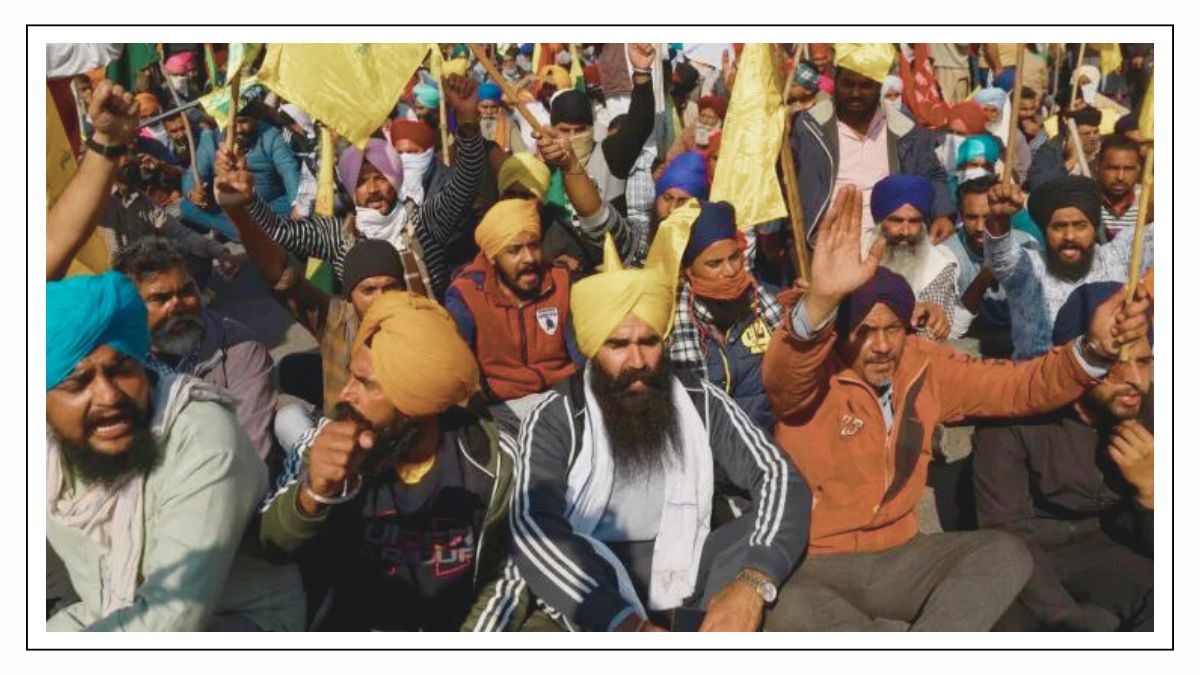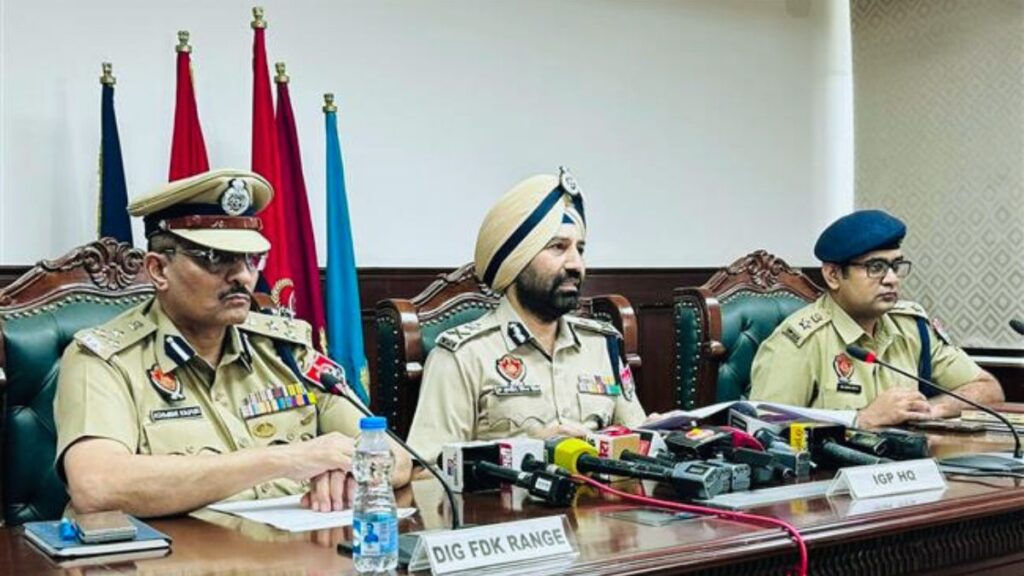What Supreme Court Directives Future of Shambhu Border Farmers Protest
The ongoing farmers protest at the Shambhu border has reached a critical juncture with the Supreme Court stepping in to mediate. Since February 13, the border has been a focal point for protesting farmers, leading to significant disruption in the region. On Monday, the Supreme Court directed authorities to partially reopen the border, emphasizing the necessity of facilitating essential services and easing the daily commute for local residents.
The Supreme Court has mandated a partial reopening of the Shambhu border. This decision aims to balance the right to protest with the need to maintain public order and accessibility. By allowing limited access, the court seeks to mitigate the impact on those who rely on the highway for their daily activities.
The court has instructed the chiefs of Punjab and Haryana, along with the Superintendents of Police (SPs) from the adjacent districts of Patiala and Ambala, to convene a meeting within a week. This meeting is crucial for strategizing the effective implementation of the court’s directives. The collaboration between these authorities is expected to lead to a smooth reopening process.
One of the primary concerns highlighted by the court is the obstruction of essential services due to the blockade. The partial reopening will prioritize the movement of ambulances, senior citizens, women, girl students, and local commuters. By doing so, the court aims to alleviate the hardships faced by these vulnerable groups.
The protest at the Shambhu border is part of a larger movement by farmers demanding a legal guarantee for the Minimum Support Price (MSP) of their produce. This demand has been at the core of the farmers’ agitation, reflecting their fears about the future of agricultural pricing and their livelihoods.
Farmers argue that without a legal guarantee, the MSP system is vulnerable to being undermined, potentially leading to their exploitation by large corporations. The insistence on legal backing is seen as a safeguard against volatile market conditions and a step towards ensuring fair compensation for their produce.
The blockade has significantly disrupted the daily commute for local residents. With the highway being a major thoroughfare, its closure has forced people to take longer, more inconvenient routes, affecting their daily routines and productivity.
The obstruction of the highway has also hampered emergency services. Ambulances and other essential service vehicles have faced delays, posing serious risks to public health and safety. The court’s directive to ensure the passage of these services highlights the critical nature of this issue.
High Court’s Order: Prior to the Supreme Court’s intervention, the Punjab and Haryana High Court had issued an order directing the removal of barricades within a week. This order was challenged by the Haryana government, leading to the current proceedings in the Supreme Court.
Supreme Court’s Observations: The Supreme Court has observed that the highway should not serve as a parking space for tractors and other vehicles used by the protesters. The bench emphasized the need for a balanced approach that respects the right to protest while ensuring public convenience and safety.
The Supreme Court highlighted the necessity of involving neutral umpires to mediate between the farmers and the government. This approach aims to build trust and facilitate productive dialogue, moving towards a resolution of the ongoing conflict.
The governments of Punjab and Haryana were commended for nominating apolitical figures to form a committee tasked with engaging the farmers. This committee is expected to act as an impartial mediator, focusing solely on addressing the concerns of the farmers and finding a mutually acceptable solution.
There have been several attempts to engage in dialogue with the protesting farmers, but these efforts have often been marred by a lack of trust. Farmers have expressed skepticism towards government assurances, citing unmet promises and unfavorable policies.
The Supreme Court’s involvement is seen as a significant step towards bridging the trust deficit. By advocating for neutral mediators and emphasizing the need for transparent communication, the court aims to create an environment conducive to genuine dialogue and resolution.
Building trust between the farmers and the government is crucial for resolving the current impasse. This involves acknowledging the farmers’ concerns, providing clear and consistent communication, and ensuring that any agreements reached are honored in letter and spirit.
For any dialogue to be successful, it is essential that the farmers feel their voices are heard and their concerns are taken seriously. This means involving them in the decision-making process and ensuring that their input shapes the outcomes of any negotiations.
The situation at the Shambhu border is a complex interplay of rights, responsibilities, and the need for effective governance. The Supreme Court’s directives aim to balance these elements, ensuring that the right to protest does not come at the expense of public convenience and safety. By fostering dialogue and building trust, there is hope for a resolution that respects the farmers’ demands while maintaining order and accessibility.
What is the Supreme Court’s directive regarding the Shambhu border?
The Supreme Court has directed authorities to partially reopen the Shambhu border to ensure the movement of essential services and local commuters while maintaining the farmers’ right to protest.
Why are farmers protesting at the Shambhu border?
Farmers are protesting at the Shambhu border demanding a legal guarantee for the Minimum Support Price (MSP) of their produce, which they believe is crucial for their financial security.
What impact has the blockade had on local residents?
The blockade has disrupted the daily commute of local residents and hampered emergency services, causing significant inconvenience and posing risks to public health and safety.
What steps has the Supreme Court taken to address the trust deficit between farmers and the government?
The Supreme Court has advocated for the involvement of neutral, apolitical mediators to facilitate dialogue between the farmers and the government, aiming to build trust and resolve the conflict.
How will the partial reopening of the Shambhu border be implemented?
The chiefs of Punjab and Haryana, along with SPs from Patiala and Ambala, will hold a meeting to strategize the reopening, ensuring that essential services and local commuters can pass through while maintaining the farmers’ protest.
What is the role of the apolitical committee in the mediation process?
The apolitical committee, formed with neutral figures nominated by the governments of Punjab and Haryana, will engage with the protesting farmers to address their concerns and find a mutually acceptable solution.
Stay connected with NH Punjab on social media. Follow us on Facebook, Twitter/X, and Instagram for the latest news updates, behind-the-scenes content, and more. Engage with us online and be a part of our growing community.
Sign up for our newsletter to get the latest news delivered straight to your inbox. Follow us on social media for real-time updates and engaging content.



